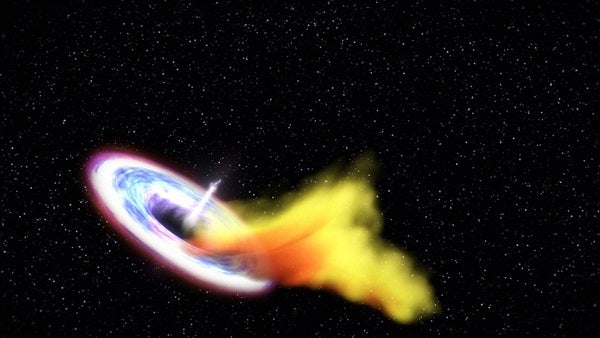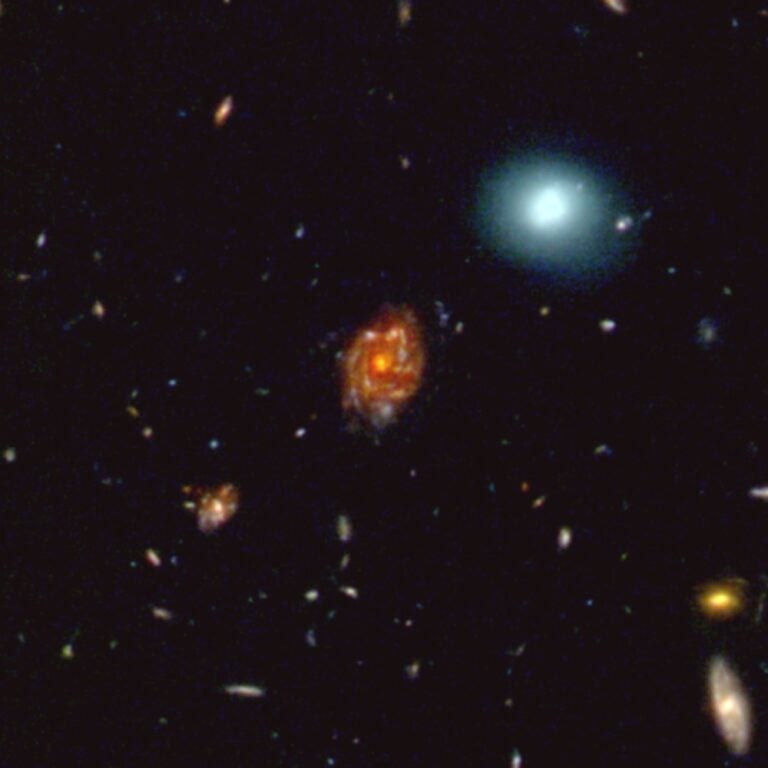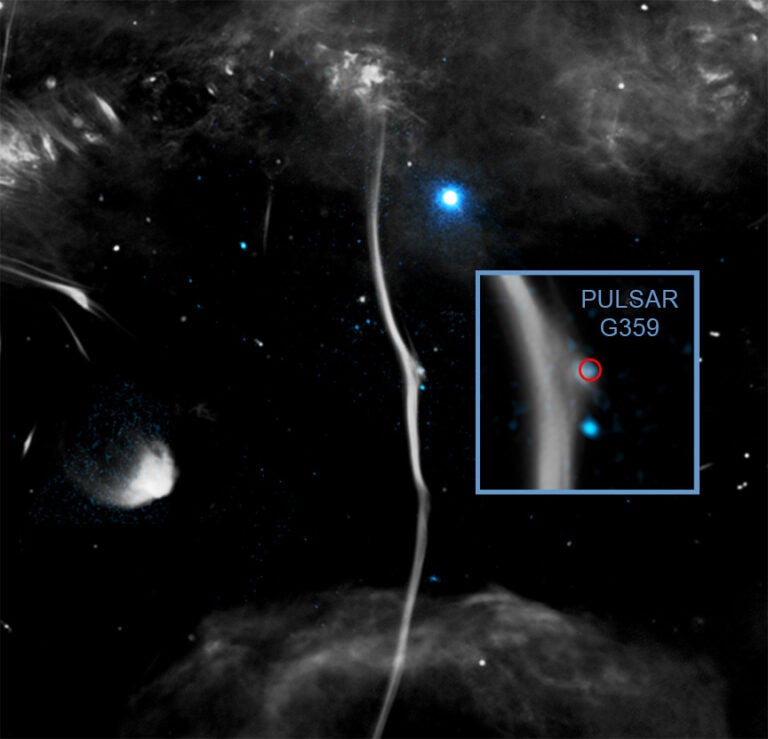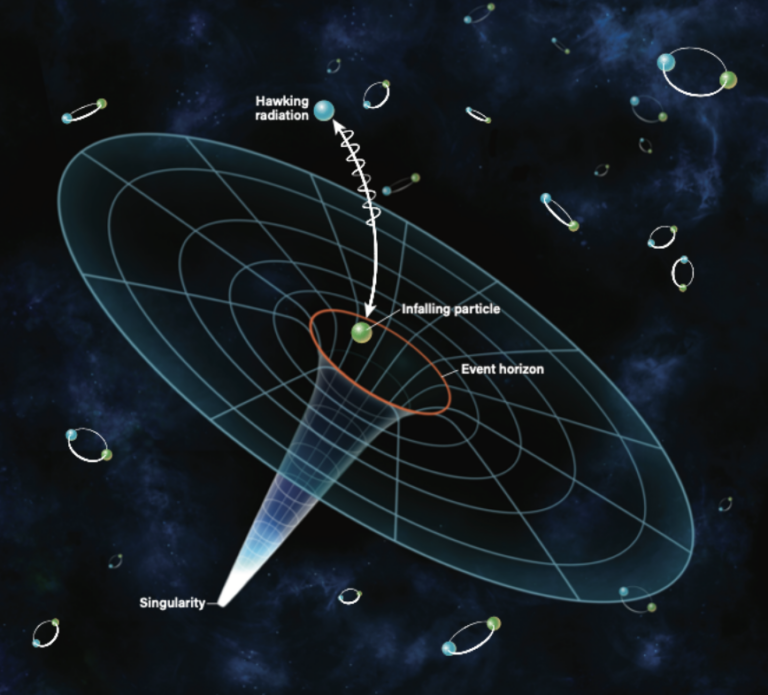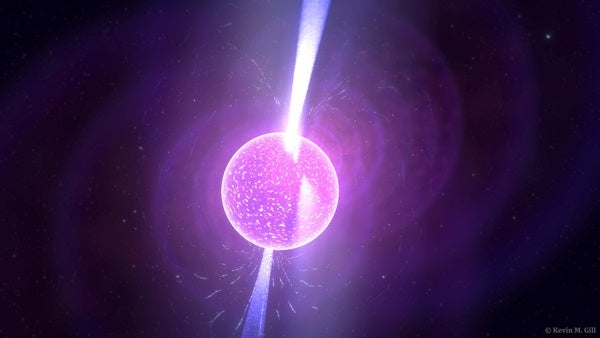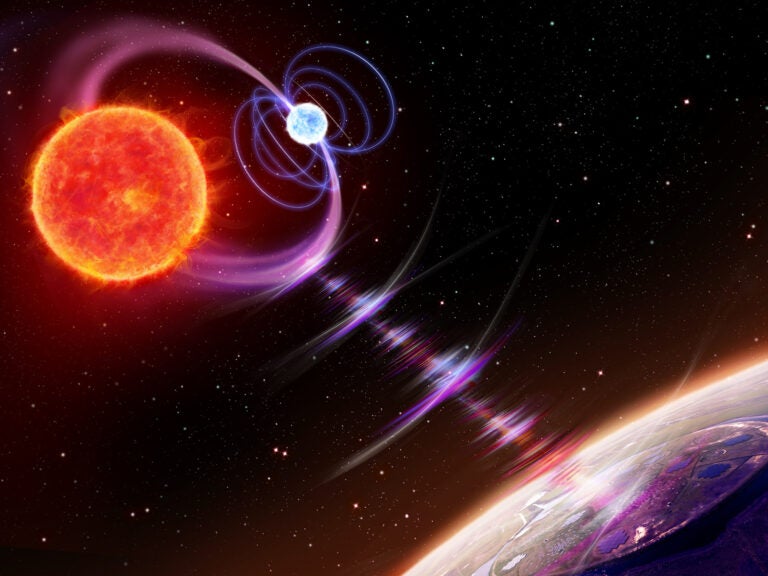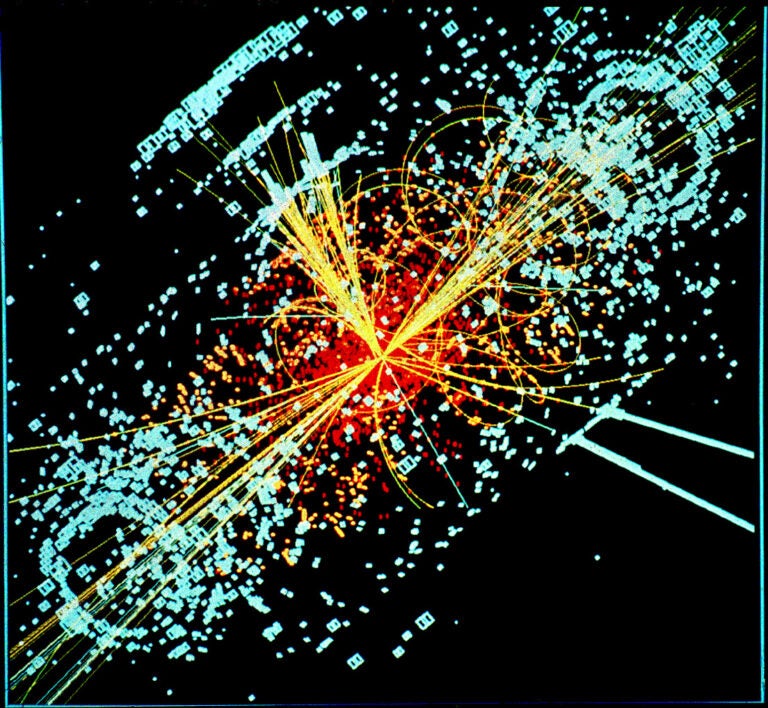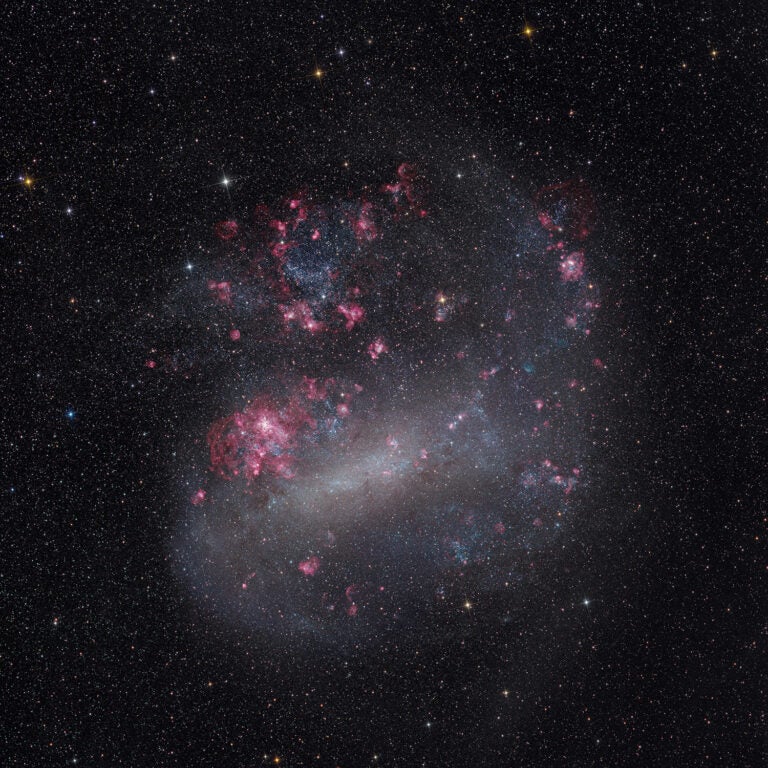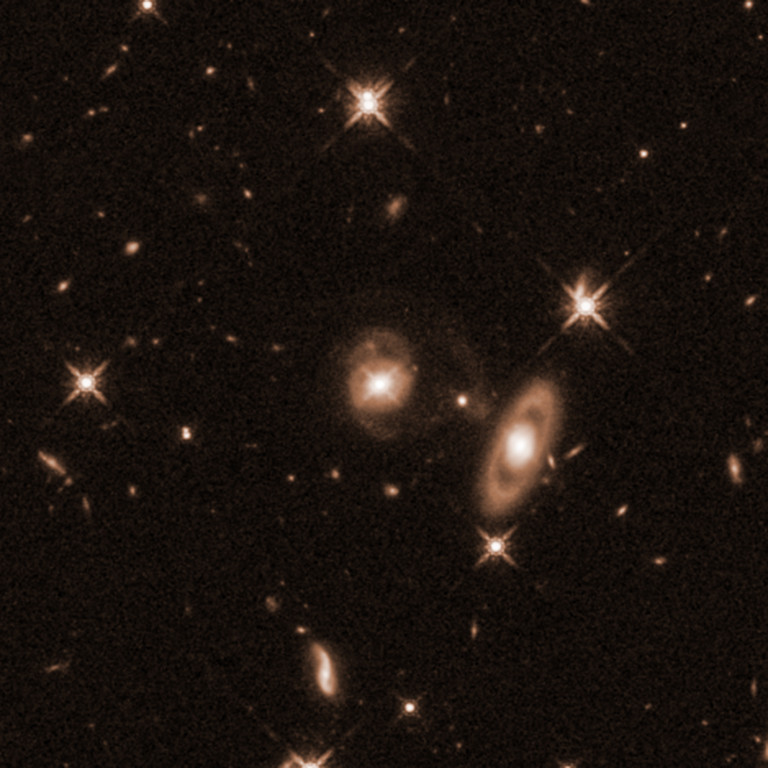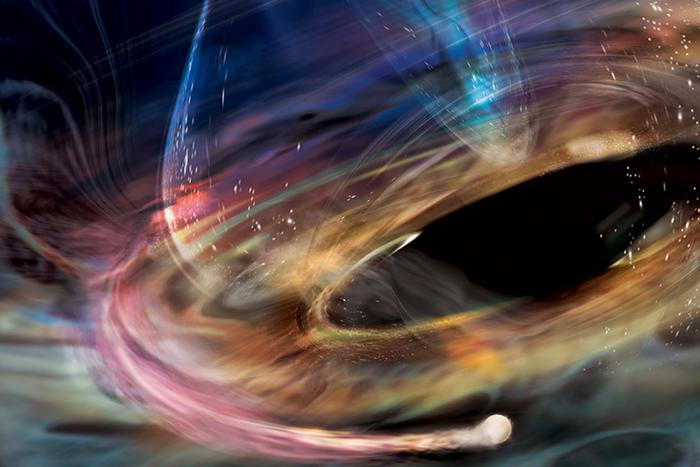Mass is a type of energy and can be converted into other types (for example, during nuclear fusion when hydrogen nuclei can convert into helium nuclei and release energy). Black holes do not violate the law of conservation of energy. When gas or other material falls past the point of no return (called the event horizon) and into a black hole, the exact amount of energy (including mass) contained in the material as it falls in is added to the black hole. So the total amount of energy in the system doesn’t change.
Black holes feeding on gas and stars is an example of an extremely important process for adding mass, called “accretion,” that is widespread throughout the universe. For example, we see black holes weighing up to 10 billion times the Sun’s mass in the centers of galaxies. These supermassive black holes must have grown by feeding on enormous quantities of gas, in some cases in a short amount of time. Young, heavy black holes provide clues about both the accretion process and the size a black hole must have been at birth.
Black hole accretion also powers some of the most spectacular phenomena in the universe: quasars (the brightest persistent objects in the sky) and radio galaxies (where jets of energy shot out of the black hole’s vicinity at nearly the speed of light interact with their surroundings to emit radio waves).
Currently, astronomers are attempting to make the first pictures of black holes feeding in real time by combining data from radio telescopes across the world. Using this Event Horizon Telescope project, scientists will study the immediate surroundings of black holes for several years to try to understand the accretion process and prove that black hole event horizons exist.

